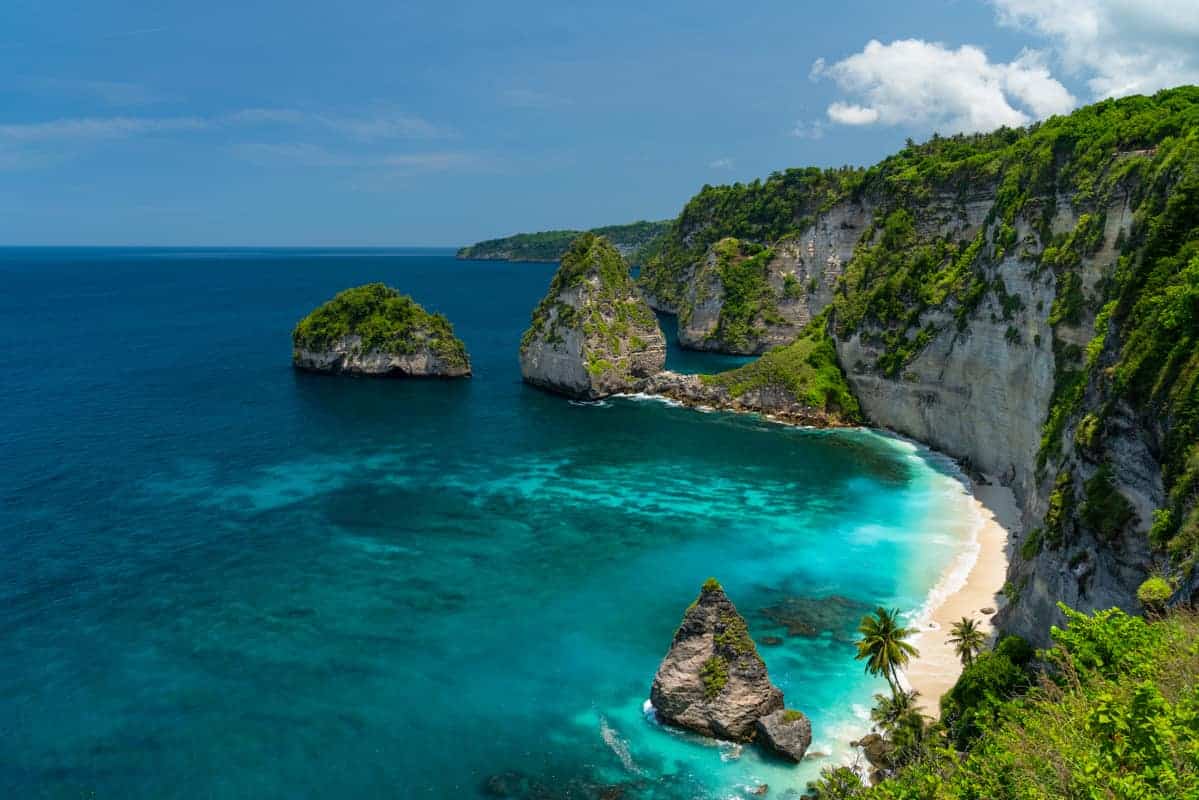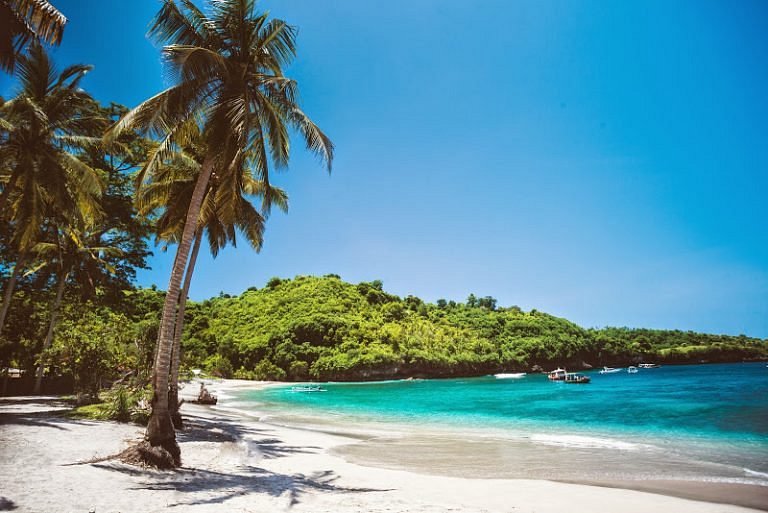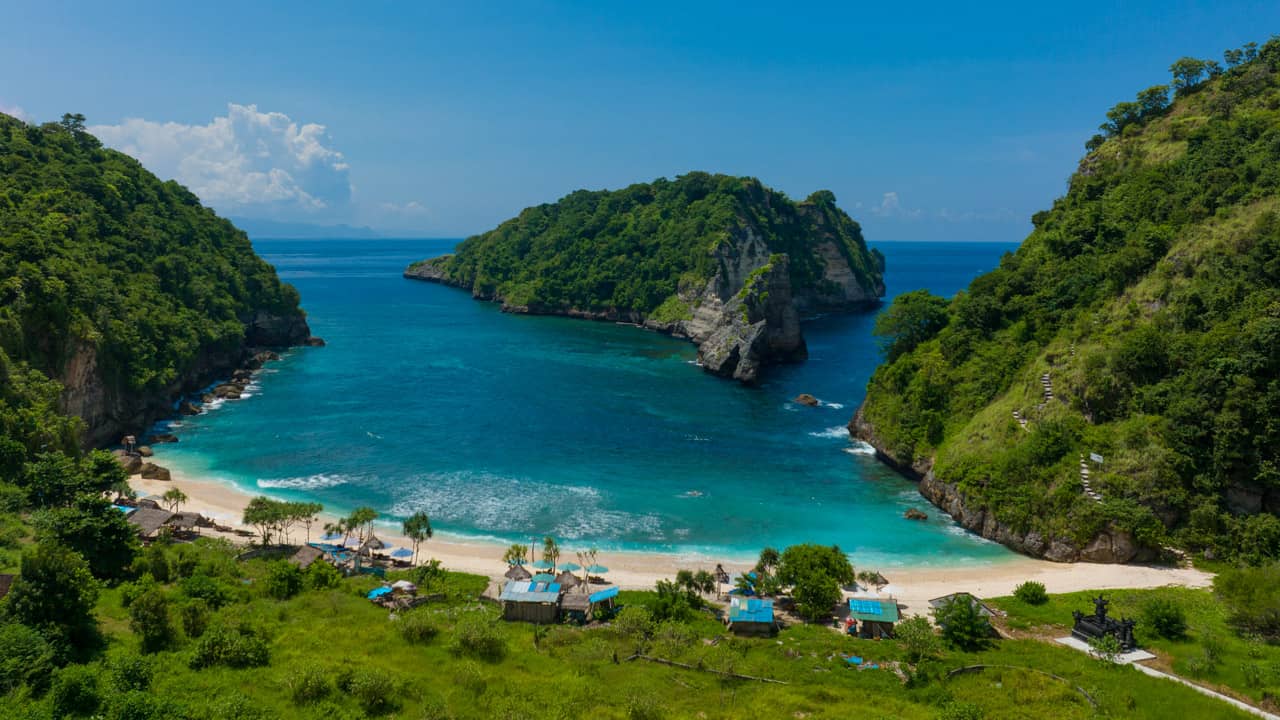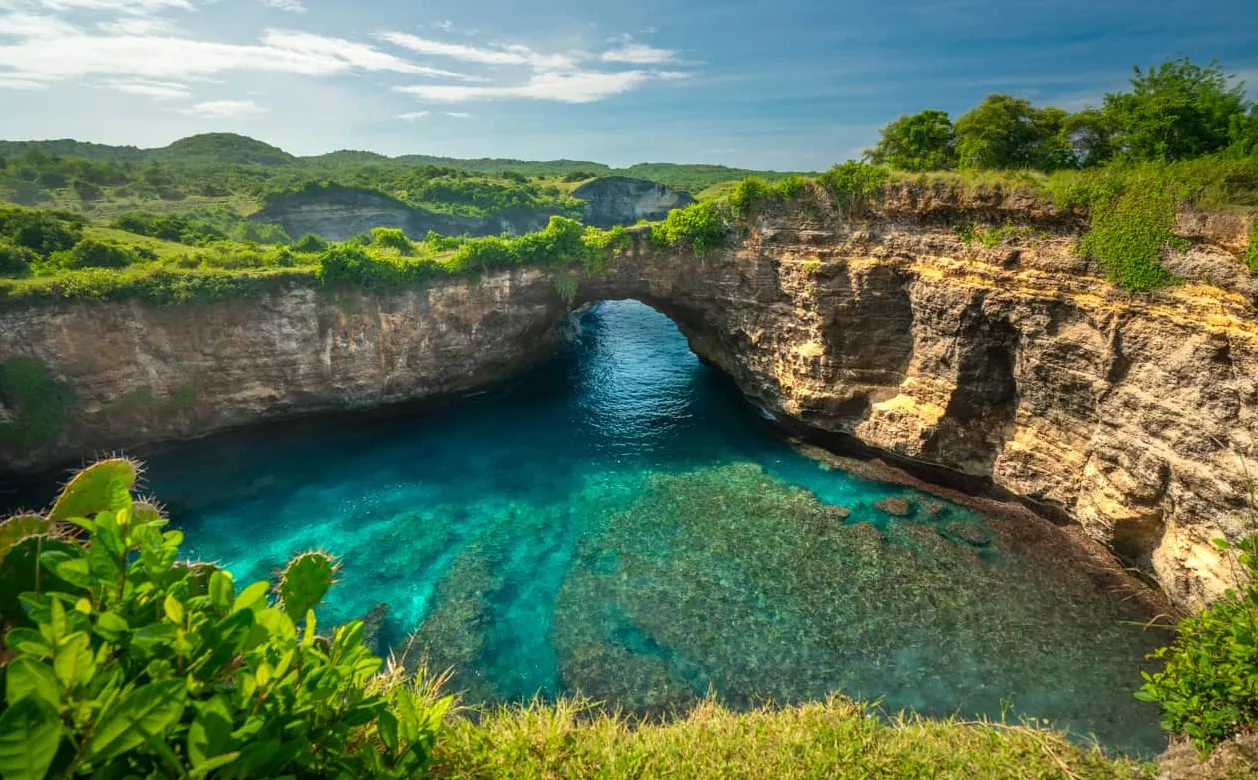The island of Nusa Penida
Discover Nusa Penida
An untouched island paradise near Bali, renowned for its natural beauty and tranquil atmosphere.

Kelingking Beach
The iconic viewpoint shaped like a T-Rex head overlooking a secluded white sand beach. A steep hike leads down to the shore for adventurous travelers.

Diamond Beach
Featuring powdery white sands and crystal-clear waters, Diamond Beach is famous for its dramatic cliffs and a wooden staircase carved into the rock face.

Crystal Bay
Calm waters ideal for snorkeling and relaxing sunsets. Known for its vibrant coral reefs and abundant marine life.

Atuh Beach
A secluded beach surrounded by towering cliffs and turquoise waters, perfect for peaceful mornings and swimming.

Angel’s Billabong
A natural infinity pool with crystal-clear waters, surrounded by volcanic rock formations. Visit at low tide for the best experience.

Broken Beach
Famous for its natural rock arch over the ocean, Broken Beach is a stunning coastal spot ideal for photography and scenic walks.
History of Nusa Penida
Nusa Penida is an island rich in culture, tradition, and natural beauty, located southeast of Bali. Its history blends ancient Hinduism, local legend, and a unique way of life preserved through centuries.
Ancient Roots and Mythology
Nusa Penida’s history is deeply intertwined with Balinese Hinduism. The island is considered sacred, home to many temples, including Pura Dalem Penataran Ped, believed to be the spiritual center of the island. Local myths tell of powerful deities and protective spirits that inhabit the island’s cliffs, forests, and waters. These stories reflect the deep respect islanders have for nature and the unseen forces they believe govern their world. Many rituals and ceremonies are still practiced today to honor these divine entities and maintain balance between humans and nature.
Isolation and Traditional Life
Due to its rugged terrain and relatively remote location, Nusa Penida remained isolated from the rest of Bali for centuries. This isolation helped preserve traditional ways of life, language dialects, and religious practices that are distinct from the mainland. The islanders relied heavily on subsistence fishing, farming, and craftsmanship, creating a close-knit community focused on sustainable living. This slower pace of life contributed to the island’s mystique and spiritual reputation.
Colonial Era and Outside Influence
Unlike mainland Bali, Nusa Penida was less affected by colonial powers due to its small population and difficult access. However, with the arrival of Dutch colonialism in the 19th century, some outside influence gradually reached the island, mostly through trade and missionary activities. Despite this, the islanders remained deeply rooted in their customs and resisted much external change, maintaining a strong cultural identity that continues today.
Cultural Significance and Spirituality
The spiritual importance of Nusa Penida extends beyond its borders, as many Balinese people make pilgrimages to its sacred temples. The island hosts several important festivals throughout the year, blending ancient Hindu rituals with local traditions. One famous ceremony is the annual Melasti purification ritual, where villagers carry offerings to the ocean to cleanse the world of spiritual impurities. The island’s sacred sites, such as Goa Giri Putri Cave Temple, attract pilgrims seeking blessings and spiritual enlightenment.
Modern Development and Tourism
In recent decades, Nusa Penida has become more accessible thanks to improved ferry services and infrastructure. This has sparked a steady growth in tourism, drawing visitors eager to experience its stunning landscapes, unique culture, and tranquil beaches. While tourism has brought economic opportunities, it also poses challenges to preserving the island’s natural environment and cultural heritage. Many local organizations and communities now focus on sustainable tourism practices to protect the island’s delicate ecosystems and traditional way of life.
Looking Ahead
Today, Nusa Penida balances its identity as a spiritual sanctuary and a burgeoning tourist destination. The island continues to embrace its ancient heritage while adapting to modern influences. Efforts to maintain environmental sustainability, promote cultural awareness, and improve infrastructure are ongoing. Visitors to Nusa Penida can witness a place where history lives on in the rituals, landscapes, and everyday lives of its people—a true treasure of Bali’s cultural and natural legacy.
